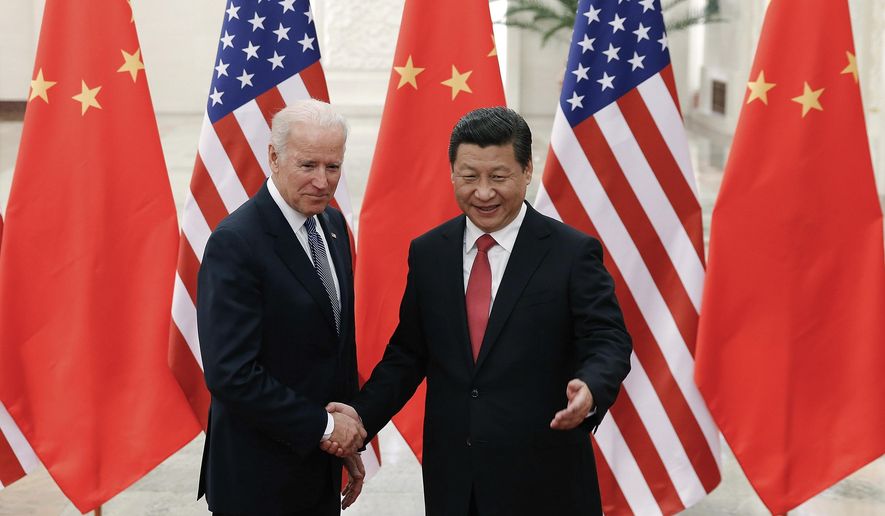One of the highest level defectors ever to flee North Korea’s repressive regime said Wednesday that Trump-era economic pressure has weakened the North Korean economy and the next U.S. administration should double-down with so-called “secondary sanctions” to block Chinese and Russian support for the regime.
“I hope the next administration will continue to maintain the policy of upgrading and strengthening sanctions against North Korea until the Kim regime completes its denuclearization,” said Ri Jong Ho, who for years led a nefarious North Korean trading company that smuggled cash to the regime, prior to fleeing with his family in 2014.
Mr. Ri told an online event hosted by the human rights advocacy organization the Defense Forum Foundation on Wednesday that North Korean leader Kim Jong Un has no intention of giving up the rogue nation’s nuclear weapons, but could be forced to if the U.S. and others exert enough economic pressure.
“If we continue to tighten sanctions against North Korea, Kim Jong Un’s regime will either eventually collapse like the Soviet Union or will denuclearize,” Mr. Ri said, adding that “the U.S. needs to focus on blocking the markets of China and Russia, which provide North Korea with import and export and labor markets.”
While he separately stressed that the “ultimate means of denuclearization” would be “a military action to selectively eliminate the nuclear armed leadership” in Pyongyang, Mr. Ri emphasized that the current economic pressure approach should be strengthened by so-called “secondary sanctions” targeting entities in China and Russia that do business with North Korea.
The two nations share a border with North Korea and, the Chinese particularly, are seen to provide a central economic lifeline to the Kim regime.
The Trump administration leveled sanctions against China’s Bank of Dandong in 2017, blacklisting it from access to U.S. financial markets on grounds it was acting as an illicit pipeline for money going to the Kim regime. But the administration has since been reluctant to impose other secondary sanctions while pursuing delicate trade negotiations with Beijing and diplomacy with the Kim regime in Pyongyang.
Mr. Ri said Wednesday that he hopes the U.S. posture might change in the post-Trump era. “When North Korea’s import and export and labor markets are blocked, money lines will be cut off and the lifeline of crude oil supplies will be cut off,” he said. “Secondary sanctions that block those markets are 100 times more effective than [just] sanctioning North Koreans.”
His comments come amid uncertainty and speculation surrounding presumptive President-elect Joseph R. Biden’s view of the North Korea situation.
Based on comments on the campaign trail and during the recent presidential debates, Mr. Biden appears unlikely to pursue the kind of high-stakes direct meetings with Kim Jong Un that President Trump embraced in recent years.
There is consensus among national security experts that the incoming administration will instead push for a return to the Obama-era policy of “strategic patience,” which aimed to isolate Pyongyang through sanctions and avoid rewarding the Kim regime with diplomatic overtures.
Critics say the policy failed, as North Korea engaged in increased nuclear detonation and long-range missile testing toward the end of the Obama years. But it remains to be seen whether a Biden administration might expand the policy going forward to include secondary sanctions targeting China and possible Russia as well.
• Guy Taylor can be reached at gtaylor@washingtontimes.com.




Please read our comment policy before commenting.